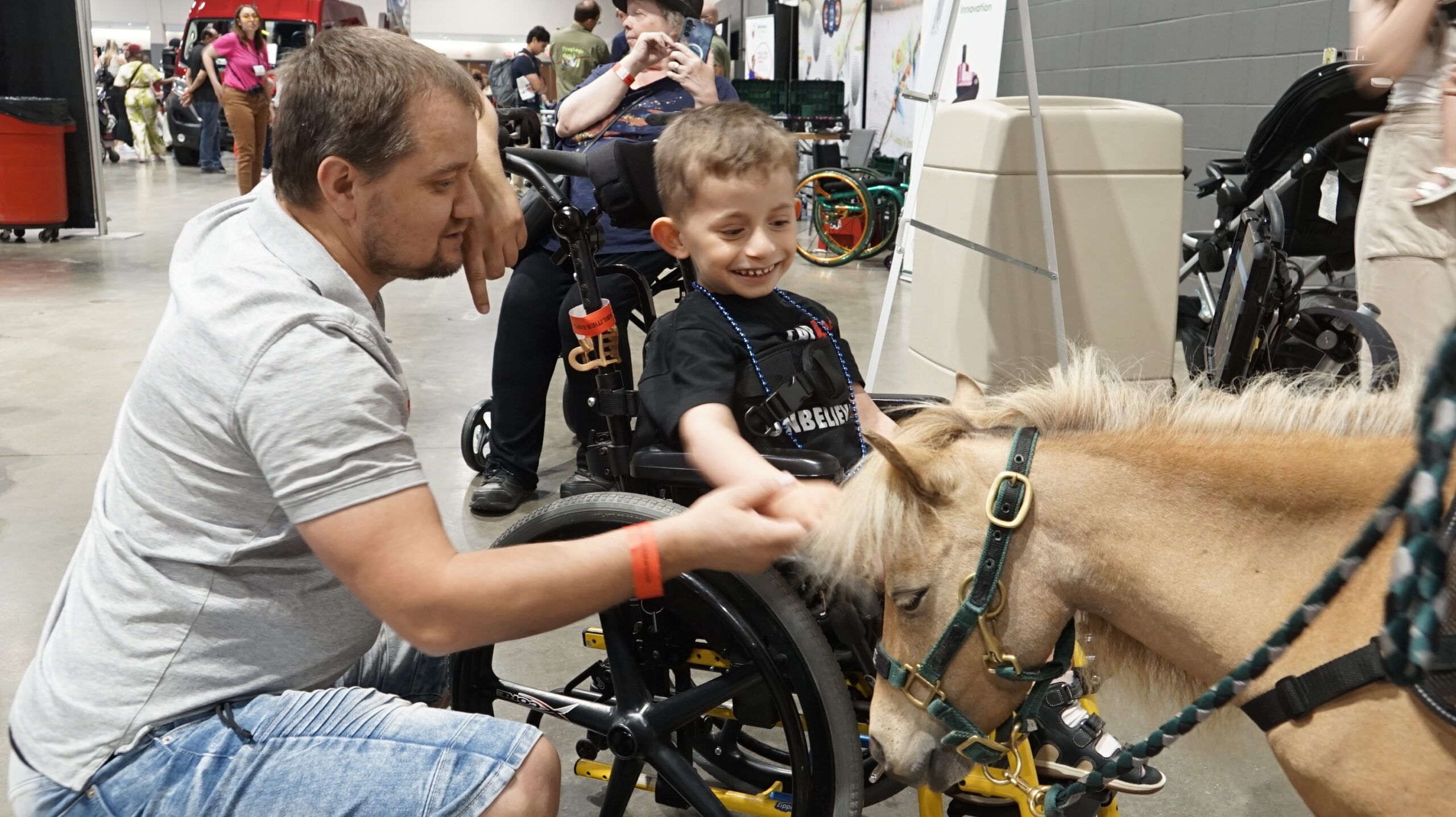Parenting overall has its challenges, but parenting a child with a disability can be overwhelming with so many avenues to navigate. Caring for their basic needs, learning about their disability, researching the best resources and getting them the right support can, at times, feel like a full-time job.

My middle son was born sick and diagnosed with multiple disabilities. Today, he’s 12 years old and unable to walk or talk yet smart, sassy and opinionated. I’m constantly juggling his changing needs, the needs of my other kids, finding ways to spend quality time with my husband as well as keeping up with my own self-care. Here are a few things I’ve learned along the way:
Stress Comes in Waves
When my son was three years old, he needed his first wheelchair, received a feeding tube and was diagnosed with epilepsy all within a few months. I struggled with his diagnosis, and there was a huge learning curve to understand where to locate the right doctors, how to manage new medication and what medical equipment was best for his body.
Looking back, I wish I had given myself grace and been more patient. It was normal to shop around for medical care and to learn about different wheelchair options. Now, when he needs a new wheelchair, I make slight modifications, but I know what I’m doing to get him the right help.
Overwhelm is Real
In addition to learning about my son and making sure he has what he needs, I was simultaneously learning about the disability world and ableism. This was isolating for me, my son and the rest of our immediate family. For example, I had to advocate for the right transportation to school, many places are not wheelchair accessible or inclusive, strangers made unwelcome comments and I had a hard time relating to friends, among other things. This all added up and weighed me down.
What Can We Do?
I’ve noticed that my son’s needs often come in waves. Sometimes, he’s coasting along, and other times he has a few appointments in one week. Balancing the load is important for every parent’s mental health, from delegating responsibilities with a spouse to asking for outside support to prioritizing needs.

Make a list of your concerns, the resources you want to consider and the people who can help. If some of your worries aren’t urgent, set them aside for now. Sometimes, the right support shows up when we aren’t hyper-focused on a particular solution.
Meet people in the community, for example, at your child’s school, through friends of friends or in Facebook groups. They can help you find good doctors and people who relate to your concerns.
Focus on Your Child
When my son was born, I read about other children with a similar diagnosis and anticipated every one of their challenges, but each child is different and unique. Living in the moment instead of projecting fears for the future is hard but, to curb overwhelm, it is important.
I also wanted to get my son as much support as possible and tried many private therapies, from horseback riding (hippotherapy) to swimming with a physical therapist. But, like any kid who has choices of extracurricular activities, he liked some and hated others. As he’s gotten older, I’ve trimmed his schedule to include only the activities I know he enjoys, or needs for his health.
Simplify The Best You Can

My son has seen ten specialists in his life, and keeping up with those appointments is a lot. As the years have passed, I’ve done my best to pare down and keep it simple. For example, I take my son to see an orthopedic surgeon in the city because we find that doctor to be the most supportive, but we stay local for most of his other appointments. I also opt for tele-health whenever it’s a choice.
Your Mental Health Matters
It may take time to get the right doctors, therapists and helpers on board, but once you have them, keep the list tight. Follow your gut when a situation doesn’t feel right and befriend the people in your community who will be an ally.
Kids notice when we’re stressed, and they want to spend time with a parent who is happy. At the end of the day, if you, as a caregiver, don’t have what you need, you can’t be there for your child.





